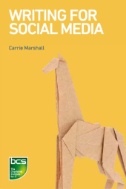Welcome to the Erickson Library's Composition II guide. You'll find tabs at the top that will lead you to additional information with print and online resources.
The Erickson Library is here to help you find credible and reliable information. Please feel free to call or email with any of your research questions!
The Erickson Library is here to help you find credible and reliable information. Please feel free to call or email with any of your research questions!
Finding background information on your subject is helpful before you dive into subject specific databases. Credo Reference (link below) is a great place to start to gather ideas for keywords.
A few keywords to try: composition, writing, writing studies, professional writing.
Visit the Articles tab to get more tips on using keywords in databases.
Credo Reference
A few keywords to try: composition, writing, writing studies, professional writing.
Visit the Articles tab to get more tips on using keywords in databases.
Credo Reference
Monday-Thursday: 8:00am-5:00pm
Friday: 8:00am-4:00pm
Phone: (218) 733-5912
Email: lsclibrary@lsc.edu
Friday: 8:00am-4:00pm
Phone: (218) 733-5912
Email: lsclibrary@lsc.edu
How to Select a Research Topic (UM Flint)
Selecting and Narrowing a Topic (LibreTexts)
Where to get ideas:
Selecting and Narrowing a Topic (LibreTexts)
Where to get ideas:
Narrowing a Topic (Choosing & Using Sources: A Guide to Academic Research, Pressbooks)
Narrowing a Topic (KU)
Research Process: An Overview: Refining Your Topic (Golden Gate U)
Narrowing a Topic (KU)
Research Process: An Overview: Refining Your Topic (Golden Gate U)
Develop a Research Question (U of Waterloo)
Developing Your Research Question (Choosing & Using Sources: A Guide to Academic Research, Pressbooks)
Developing Your Research Question (Choosing & Using Sources: A Guide to Academic Research, Pressbooks)
How to Write a Research Proposal (Scribbr)
Developing a Thesis Statement (UW Madison)
How to Write a Thesis Statement (Indiana U)
Parts of a Thesis Sentence (Excelsior Online Writing Lab)
Thesis Statements (KU)
Thesis Statements (UNC)
Tips on Writing a Thesis Statement (Gustavus Adolphus)
How to Write a Thesis Statement (Indiana U)
Parts of a Thesis Sentence (Excelsior Online Writing Lab)
Thesis Statements (KU)
Thesis Statements (UNC)
Tips on Writing a Thesis Statement (Gustavus Adolphus)
Gale in Context Toolbox-How to Make an Outline
Outlining Basics (UT Dallas)
Writing a Paper: Outlining (Walden U)
Outlining Basics (UT Dallas)
Writing a Paper: Outlining (Walden U)
Paraphrasing & Quoting
Quoting and Paraphrasing (UW Madison)
Quoting, Paraphrasing, and Summarizing (Purdue Owl)
Quoting, Paraphrasing, & Summarizing (U of AZ)
Summarizing
Summary: Using It Wisely (UNC)
Writing Summaries (LibreTexts)
Writing Summaries (The Word on College Reading and Writing, Pressbooks)
Synthesizing
Synthesizing (Introduction to Writing in College, Pressbooks)
Synthesizing Sources (Purdue Owl)
Quoting and Paraphrasing (UW Madison)
Quoting, Paraphrasing, and Summarizing (Purdue Owl)
Quoting, Paraphrasing, & Summarizing (U of AZ)
Summarizing
Summary: Using It Wisely (UNC)
Writing Summaries (LibreTexts)
Writing Summaries (The Word on College Reading and Writing, Pressbooks)
Synthesizing
Synthesizing (Introduction to Writing in College, Pressbooks)
Synthesizing Sources (Purdue Owl)
Ethos, Pathos, & Logos (English 087: Academic Advanced Writing, Pressbooks)
Rhetorical Appeals: Logos, Pathos, and Ethos Defined (A Guide to Rhetoric, Genre, and Success in First-Year Writing)
Rhetorical Appeals: Logos, Pathos, and Ethos Defined (A Guide to Rhetoric, Genre, and Success in First-Year Writing)
Tutorials
LSC Library Tutorial (sign in to D2L and find L.I.L.T.)
MLA Examples
Purdue Owl
Citation Generators
Citation Generator
Citation Machine
EasyBib
LSC Library Tutorial (sign in to D2L and find L.I.L.T.)
MLA Examples
Purdue Owl
Citation Generators
Citation Generator
Citation Machine
EasyBib
You'll need to log-in with your StarID and password to access the Ebsco eBook Collection.
 Complete Idiot's Guide to Writing Well by Laurie Rozakis
Complete Idiot's Guide to Writing Well by Laurie Rozakis
 Writing for Social Media by Carrie Marshall
Writing for Social Media by Carrie Marshall
 Complete Idiot's Guide to Writing Well by Laurie Rozakis
Complete Idiot's Guide to Writing Well by Laurie Rozakis- NewsBank
Newsbank delivers U.S. news content from local, regional, and national sources. Diverse source types include printed and online newspapers, blogs, journals, newswires, broadcast transcripts and videos. Includes Special Reports. Includes access to current and archived articles of the Duluth News Tribune. - Opposing Viewpoints
This online resource covers today's hottest social issues, from capital punishment to immigration to marijuana. It includes rich resources for debaters and includes viewpoints, reference articles, news, images, video, and more. - Points of View Reference Center
Points of View is a full-text database that offers students with a series of comprehensive essays with point and counterpoint arguments related to current issues in the news. Points of View Reference Center Tutorial - Academic Search Premier
EBSCO's largest database includes full text of thousands of scholarly publications across all academic disciplines. Watch the Ebscohost Tutorial. - EBSCO MegaFILE
Save time and search all four EBSCO databases at once. The EBSCO MegaFILE is comprised of the complete content and functionality of Academic Search Premier, MasterFILE Premier, Business Source Premier, and Regional Business News. - JSTOR
JSTOR is a shared digital library created in 1995 that currently includes more than 2,000 academic journals. The content on JSTOR comes from a broad range of disciplines, predominantly in the humanities, social sciences, and field sciences.
1. Useful keywords: communication, communication studies
2. Break down your topic into smaller concepts and identify synonyms.
3. Use and to combine keywords, i.e. "composition and first year writing"
4. Use or to expand your results, i.e. "composition or writing"
5. Use "quotaton marks" to search keywords as a phrase, i.e. "college writing"
6. Use an asterik* to search multiple endings, i.e. comp* will search composition, composing, etc.
2. Break down your topic into smaller concepts and identify synonyms.
3. Use and to combine keywords, i.e. "composition and first year writing"
4. Use or to expand your results, i.e. "composition or writing"
5. Use "quotaton marks" to search keywords as a phrase, i.e. "college writing"
6. Use an asterik* to search multiple endings, i.e. comp* will search composition, composing, etc.
Ethos, Pathos & Logos (tamuwritingcenter)
How to Find Relevant Sources (Credo Reference)
How to Select a Topic (Credo Reference)
Paraphrasing (Credo Research)
Synthesizing Research (Credo Reference)
What to Do When Your Topic is Too Broad (Credo Reference)
Writing with Sources: Quoting, Paraphrasing, Summarizing (U of Louisville)
How to Find Relevant Sources (Credo Reference)
How to Select a Topic (Credo Reference)
Paraphrasing (Credo Research)
Synthesizing Research (Credo Reference)
What to Do When Your Topic is Too Broad (Credo Reference)
Writing with Sources: Quoting, Paraphrasing, Summarizing (U of Louisville)


